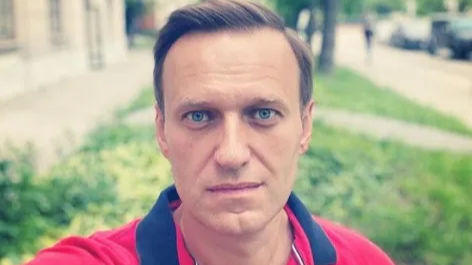Russian President Vladimir Putin critic Alexei Navalny, who fell ill in Serbia after boarding a plane last month and is being treated in Berlin, was poisoned with a Novichok nerve agent, Germany said on Wednesday.
German government spokesperson Steffen Seibert in a statement said the tests carried on Navalny have provided “unequivocal evidence of a chemical nerve agent from the Novichok family.” The nerve agent Novichok is a military-grade poison that was developed by the Soviet government towards the end of the Cold War and can be deployed in an ultra-fine powder, liquid, or vapour.
Condemning the attack on Navalny, Seibert said, “The Russian government is urgently requested to provide clarifications over the incident.” He said, “It is a shocking event that Alexei Navalny has become the victim of an attack with a chemical nerve agent in Russia.”
Foreign Minister Heiko Maas said Germany had called in Russia’s ambassador to demand answers on the case.
Before being flown to Berlin, the 44-year-old Russian opposition leader was initially treated in a local hospital in Siberia as he fell ill after boarding a plane.
Soon after the incident, Navalny’s allies had said he may have been poisoned by a cup of tea he drank at Tomsk airport in Siberia. But the Russian doctors who first treated Navalny said their tests did not find any toxic substances, and the Kremlin has rejected international calls for an investigation.
Also Read | Putin’s critic Navalny victim of ‘criminal act:’ France
The Charite hospital last week reported “some improvement” in Navalny’s condition but he nevertheless remains in a medically induced coma and on a ventilator. The severity of the poisoning meant that it was too early to determine potential long-term effects, the hospital warned.
“Only the state (FSB, GRU) can use Novichok. This is beyond any reasonable doubt,” Ivan Zhdanov, the director of Navalny’s Anti-Corruption Foundation, said on Twitter on Wednesday, referring to the FSB internal security and GRU military intelligence services.
The German government said it would inform NATO and EU partners over its findings and seek a joint reaction on the case.
Kremlin spokesman Dmitry Peskov on Wednesday told state news agency Ria Novosti that Russia had not been informed about the German government’s latest findings.
The case has drawn parallels with two suspected Kremlin-linked poisonings in Britain. In 2006, President Vladimir Putin was blamed for the radiation poisoning death of former KGB agent Alexander Litvinenko in the British capital. In 2018, the Kremlin was also accused of being behind the attempted murder of ex-double agent Sergei Skripal in Salisbury, southwest England, using a Novichok nerve agent.







